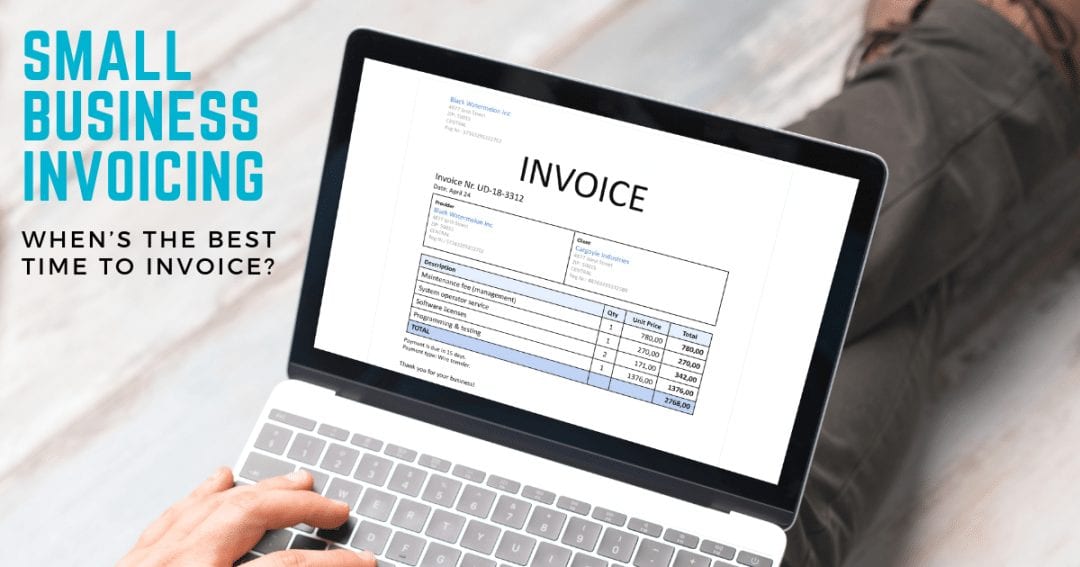Knowing when to invoice can make all the difference between having a nice flow of money in your business and having no money at all. You can have different invoicing habits for different customers, projects, products or channels – you don’t have to have a one-solution-fits-all approach. In fact, for every small business, invoicing timing is really up to you.
What’s best for your business?
The way you invoice and the point in your business transaction when the invoice goes out is usually dependent on the type of business you run. For example, if you sell your products online, you’ll take payment at the point of purchase, so your invoice is likely to accompany the product when you post it out: you’ll already have received the money – the invoice is really a record of cost, and the receipt is a record of payment.
But if your business is in the service sector, you may not invoice until the work is done – or you may invoice in part before work starts. How you plan this is up to you and the way you want to manage cash flow in your business. Here are the main times when invoices, processing and payments might matter to you:
Before the goods or services are delivered
Most customers are used to paying for goods before they are delivered. If you are going to use this option, you should give your customers clear information on what to expect in terms of delivery, and how they can return their item or claim a refund if they are not satisfied. This is usually done on your website, or in a catalogue if you are selling direct. If you are selling a service, you can make these terms clear in the terms and conditions you send with your quote or proposal.
Paying upfront is a good option for your business because it helps to keep your cash flow in a positive position, and it saves you having to chase payment once you have completed the order. You will have to develop trust with your customers, however, especially for a service-based company, so that they are happy to pay up front.
At staged intervals
Many businesses choose to use staged invoices. This might be 25% up front and the rest on delivery, or it may be in three or four stages as the project progresses. This can work well because you can budget ahead, knowing that certain payments are definitely coming into the business, and it also gives your customer confidence because they are paying for progress and delivery – and they can also budget for the payments.
If you outsource invoice processing, there is no hassle involved in this type of invoicing, because you can just use your resource to set up the process at the start of the project, and they will automatically handle everything for you.
Once a project is completed
Many businesses choose to send out an invoice once the job is completed. Whilst this is standard practice in many sectors, it can create some difficulties:
- You have done the work but you may not get paid
- You have to chase unpaid invoices
- Customers have their own accounts timescales and your cash flow could suffer from late payments
- Customers may query the quality of the work in an attempt to reduce the invoice amount, even though you have completed the work as agreed
- Your customer’s incentive to pay is reduced because you have already supplied the product or service
Whilst a small business bookkeeping service, for example, could issue and chase your invoices for you, your business is still left with a potential cash flow problem if all your invoicing is done once the job is complete.
On a job-by-job basis
You can, of course, agree an invoicing solution on a project-by-project basis with your customer. This might be particularly relevant if you have to buy materials or bring in specific skills in order to fulfil the project, or if the project is long-running and you need to ensure cash flow over that period. In that case, make sure you have a written agreement and an invoicing schedule so that both you and the customer know what to expect.
These are the typical ways to handle small business invoicing – If you’re short on time and need help with invoicing for your business, feel free to call us on 0800 994 9016 or use our contact form in the menu above.

